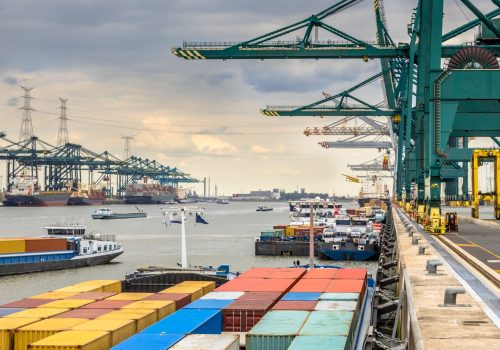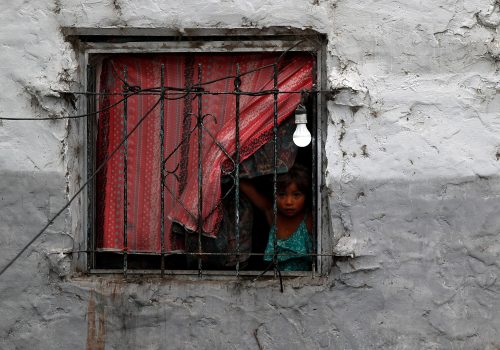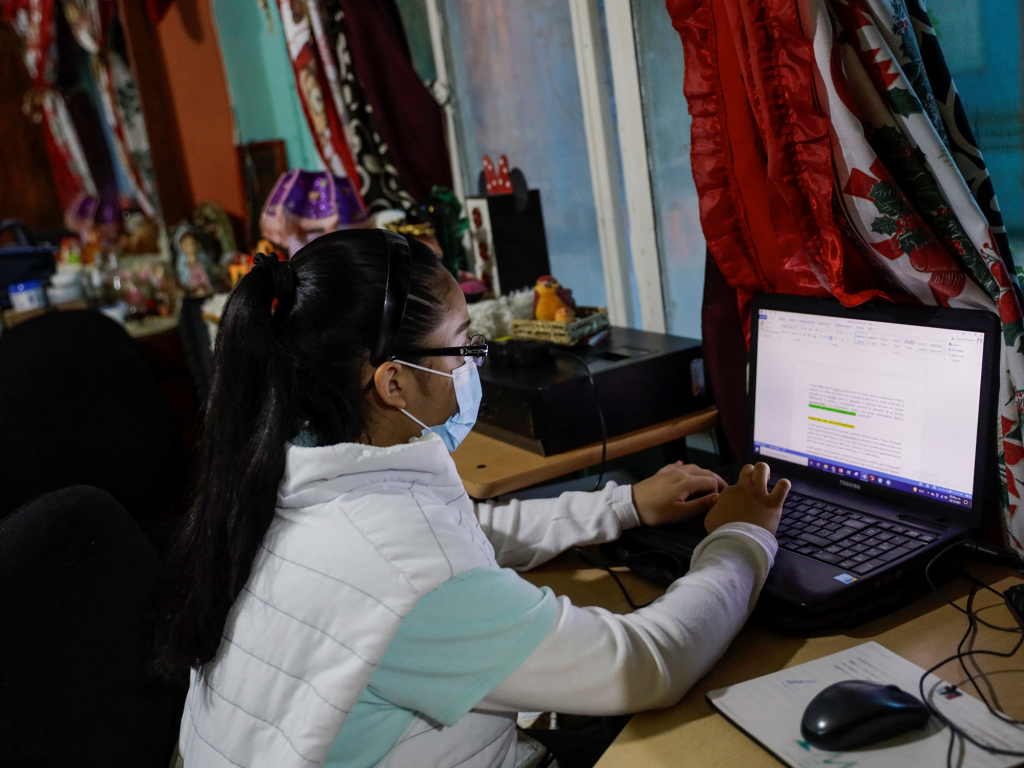Meaningfully advancing the green agenda
This is the 5th installment of the Unlocking Economic Development in Latin America and the Caribbean report, which explores five vital opportunities for the private sector to drive socioeconomic progress in LAC, with sixteen corresponding recommendations private firms can consider as they take steps to support the region.
How does the private sector perceive Latin America and the Caribbean (LAC)? What opportunities do firms find most exciting? And what precisely can companies do to seize on these opportunities and support the region’s journey toward recovery and sustainable development? To answer these questions, the Atlantic Council collaborated with the Inter-American Development Bank (IDB) to glean insights from its robust network of private-sector partners. Through surveys and in-depth interviews, this report identified five vital opportunities for the private sector to drive socioeconomic progress in LAC, with sixteen corresponding recommendations private firms can consider as they take steps to support the region.
Meaningfully advancing the green agenda
The private sector identified the green agenda as a major opportunity, with more than half of survey respondents flagging “addressing climate change” as a top sustainable development and business priority to drive full economic recovery from COVID-19.1Opportunities and Challenges in Latin America and the Caribbean: The Private Sector Perspective,” June 2022, question 10. While climate action is critical on a global level, companies recognize that it is particularly pressing in LAC.
LAC is the world’s most economically unequal region and the second-most disaster-prone region in the world, highly vulnerable to climate consequences.2“GHO 2023: at a Glance,” Humanitarian Action, last visited January 25, 2023, https://gho.unocha.org/appeals/latin-america-and-caribbean#footnote-paragraph-136-1. This vulnerability threatens to further entrench inequality and undermine the wellbeing of people and communities. Every year, between one hundred and fifty thousand and two million people in LAC are pushed into poverty or extreme poverty because of natural disasters, while as many as seventeen million people could migrate across LAC by 2050 due to climate change.3Carlos Felipe Jaramillo, “A Green Recovery of Latin America and the Caribbean is Possible and Necessary,” Latin America and the Caribbean World Bank Blog, September 11, 2020, https://blogs.worldbank.org/latinamerica/green-recovery-latin-america-and-caribbean-possible-and-necessary. Climate change also threatens food security, which can heavily impact rural communities.4Enrique Oviedo and Adoniram Sanches, coords., “Food and Nutrition Security and the Eradication of Hunger: CELAC 2025: Furthering Discussion and Regional Cooperation,” Community of Latin American and Caribbean States, July 2016, 74–75. https://repositorio.cepal.org/bitstream/handle/11362/40355/S1600706_en.pdf?sequence=1&isAllowed=y. It will generate economic costs of up to $100 billion annually by 2050, which undercut growth and limit the ability of businesses to operate, prosper, and thrive.5Walter Vergara, et al., “The Climate and Development Challenge for Latin America and the Caribbean: Options for Climate-Resilient, Low-Carbon Development,” Economic Commission for Latin America and the Caribbean, Inter-American Development Bank, and World Wildlife Fund, 2013, 13–14, https://publications.iadb.org/publications/english/document/The-Climate-and[3]Development-Challenge-for-Latin-America-and-the-Caribbean-Options-for-Climate-Resilient-Low-Carbon-Development.pdf.
Recommendations for the private sector
Advancing the green agenda is not only imperative as a means of addressing the threat of climate change, but also as a means of unlocking massive business opportunities with the potential to drive private-sector-led economic recovery and growth in LAC. In particular, private firms have an important role to play by creating green jobs, promoting the circular economy, and partaking in green finance.
- Creating green jobs: Firms can help create green jobs by adopting sustainable practices, seizing business opportunities in emerging green sectors, and providing upskilling, reskilling, and other support for workers displaced by the green transition.
- Promoting the circular economy: Firms can help drive a transition to a circular-economy model by financing circular-economy efforts, supporting multistakeholder initiatives, and adopting and promoting sustainable business practices.
- Partaking in green finance: The financial sector can help foster a green-finance ecosystem in the region by tightening environmental, social, and governance (ESG) requirements, aligning investments with green objectives, and nurturing green[1]bond markets in LAC.
About the author
Related content

The Adrienne Arsht Latin America Center broadens understanding of regional transformations and delivers constructive, results-oriented solutions to inform how the public and private sectors can advance hemispheric prosperity.
Image: Aerial view of large electrical power plant with many rows of solar photovoltaic panels for producing clean ecological electric energy in morning. Renewable electricity with zero emission concept.





